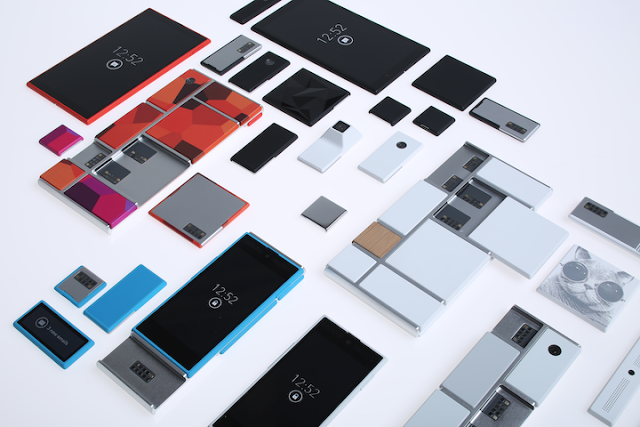Project Ara is a Modular Smartphone from Motorola
Motorola wants to build a phone that you can upgrade and update yourself with detachable hardware modules.
Motorola has announced a new modular smartphone project that will allow users to update their phone by swapping in and out different modules that attach to an endoskeleton. These modules would cover everything from the keyboard to the display and the battery, to more unique modules like a pulse oximeter. Project Ara aims to bring the benefits of an open hardware ecosystem to all smartphone users with a phone that is built to last.
"Our goal is to drive a more thoughtful, expressive, and open relationship between users, developers, and their phones. To give you the power to decide what your phone does, how it looks, where and what it's made of, how much it costs, and how long you'll keep it."
To achieve this, Motorola worked with Phonebloks creator Dave Hakkens. Hakkens first talked about his concept for a modular, open source phone in mid-September. Since then, he and Motorola have talked and decided to collaborate (Motorola has apparently been working on Ara for a year) to a certain extent. Phonebloks and Motorola will still operate independently, but Motorola will take advice and input from the Phonebloks community while it works to develop Ara further.
Motorola hasn't mentioned a release time frame just yet. The closest it comes is mentioning that it will invite developers to start creating modules in a few months. An alpha release of the Module Developer's Kit (MDK) is expected this coming winter.
Follow Jane McEntegart @JaneMcEntegart. Follow us @tomshardware, on Facebook and on Google+.
Get Tom's Hardware's best news and in-depth reviews, straight to your inbox.

Jane McEntegart is a writer, editor, and marketing communications professional with 17 years of experience in the technology industry. She has written about a wide range of technology topics, including smartphones, tablets, and game consoles. Her articles have been published in Tom's Guide, Tom's Hardware, MobileSyrup, and Edge Up.
-
eroshima this looks very promising! altough many manufacturers will likely not cooperate first hand. This could really bring cost down (in the long run) when buying a new phone, increasing ram or local storage, swapping out the gpu for a faster one, or radio modules (wifi, bluetooth, etc), and camera module. Keyboard and screen can be swapped out (on most devices) and battery too. one of the biggest concerns (issue) will be a standarize form factor for deployment.Reply -
g-unit1111 Man that would be awesome when Corsair, Mushkin, and EVGA start making 3rd party cell phone components. Please let it happen!Reply -
teh_chem This is not going to go mainstream.Reply
For items/instruments that don't need to take into account space-efficiency; great. You can have big bulky modules for each individual component. For phones where space is key, this would only yield larger and poorly-integrated devices. -
renz496 Reply11818932 said:this looks very promising! altough many manufacturers will likely not cooperate first hand. This could really bring cost down (in the long run) when buying a new phone, increasing ram or local storage, swapping out the gpu for a faster one, or radio modules (wifi, bluetooth, etc), and camera module. Keyboard and screen can be swapped out (on most devices) and battery too. one of the biggest concerns (issue) will be a standarize form factor for deployment.
Except you cant sweep for faster gpu since in mobile device like this both cpu and gpu comes under one package. :p -
clonazepam I wouldn't go near it with a 10 foot pole if I had to provide any kind of warranty support.Reply -
dgingeri I thought it would be better to just have all the parts loose in various pockets: a low power wifi or BT like "hub" that bridged the components to the internet with modules that would connect to it for storage, a watch for a display, a small keypad for making calls, an earpiece for listening to music and talking on phone calls, a small badge to just tap to answer incoming phone calls, a separate camera module if needed, a separate screen for the other uses, etc.Reply -
TwoBridges Most of consumer electronics should be built with recyclable materials and have modular components. This is the wave of the future. The amount of wasted tech and thrown away tech around the world is unsustainable. Companies love planned obsolescence but the consumer hates it! TIME TO CHANGE THE WORLD FOLKS! DOWN WITH THE BANKS AND THE CORPS!Reply

